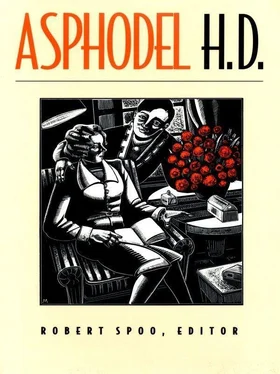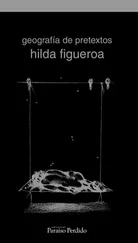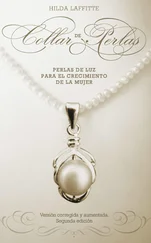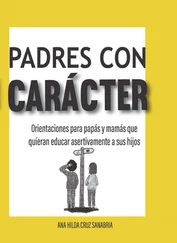She had said the right thing by accident, her brain seemed to work that way, automatically but she couldn’t go on expecting the right answer, like throwing dice and expecting double sixes every other time. . why didn’t the girl go? Brain went on (she had tested it) on a rail all by itself though brain was (she had tested it) a white marble statue, a bronze heavy thing that had sunk, had sunk, irrevocably like the precious cargoes of Corinthian plunder that had sunk. . had sunk. . “didn’t they want last winter? I mean winters, and winters ago, to drag Lake Nervii?” Yes, Lake Nervii. Where had that come from? Outside Rome, she and Darrington had walked the whole way outside the gates proper, walked up and up and up through winter olives and on and on and on through winter olives (there were violets, winter violets) and winter was a clear hard spring with almond blossoms like clear hard shells flung against a blue, blue, blue that wasn’t a dome but simply a waste of space going on and on and on. . olives. “I remember last winter — I mean winters and winters ago — a winter in Rome and how we walked, my husband, Jerrold Darrington and I, miles and miles and found the lake. We didn’t get to the opposite side though they say there is a whole area there, almost another unexplored Pompeii.” Hermione had determined to sink into her own self-made aura. Herself had woven herself an aura, a net, a soft and luminous cocoon but somehow daemon eyes drew out of her all these things, all these other things. Was the girl a witch, some bad thing, some evil thing? Why did the girl draw these things out of her, things that came automatically, a sort of superior intellectual psycho-analysis, going on and on and she wanted to drift, had been drifting, had not thought of the galley sunk in Lake Nervii for years and years, did not believe she had ever thought of it since that winter day, winters and winters ago. Why did the girl do this? How did she? “What in God’s name is the—” She couldn’t say “ what is the matter with you” though in another layer of her consciousness she sensed something that was wrong, something that was dangerous. Eyes don’t look normally out of faces like that. Small chin, small Eros chin, mouth more than a child-Eros, a mouth that was a youth Eros, perfect bow of slightly too wide mouth but lips narrow, coral— “Do you remember the shop, that special one at the top of the via Quattro Fontane, just this side of the entrance to the Pincio? It was a common window. I don’t know why I remember it. There are so many of those obvious striped Roman scarves and coral.” Lips were coral lips, smooth, lips were Eros lips, the mouth was too perfect though the nose plunged forward dangerous, too large, ploughing as it were a way before it, but the nose in this light was put on, rightly placed, giving too much character to the characterless child face. There was too much character for that baby chin, that breadth of chaste arc eye-brows. The nose gave too much character and the eyes spoiled all the effect of peace, and of non-entity. Eyes and nose were wrong or was it perfect small chin and perfect mouth and chaste nymph eye-brows wrong? Something was wrong. Two faces, one on top of the other, both Greek, neither Greek, each spoiled by each. “No. I have never been to Syracuse.”
Syracuse, Syracuse, Syracuse. Why do you say that name? Hermione. Your name is Hermione not Morganlefay, what a pity, for Morganlefay was such a comfortable person, don’t you know what I mean, aura like a willow catkin, aura and flower of self blurred over, not really flowering, shining like penumbra of the harvest moon, glowing a sort of yellow, the heat the willow catkins give off in the spring, the colour of the blobs and blobs of willow dust reflected in silver, a silver reflection of gold aura of willow catkins, that is the aura of Morgan le Fay. What a pity that a name, just a name spoken (Syracuse, Syracuse) does something, it’s odd how names (Greek names like that) never lose, never have lost their potency. And it’s rather horrible. For if you say Syracuse it’s like a knife and it’s like a crescent moon and it might do terrific damage. You must be careful how you use these Greek names. People are right, nice comfortable people in comfortable houses, these Greek names are dangerous, don’t have any Greek about, it’s a sort of white gun-powder. It’s right not to encourage people, children, learning Greek, gun-powder white or black is gun-powder and we’re tired of fighting, all that happened in 17, 18 or was it 19. It might have been just 17 a long time ago in Syracuse, 17 B.C. or A.D., something of the sort for the name Syracuse breaks down the centuries, there remains nothing but the name, white gun-powder, powder made from temple pillars riven and split and ground to dust. Those columns had to be riven and split and ground to dust. Those statues had to be riven and split and ground to dust. Out of the dust, the most minute electric distillation was contrived and gun-powder resides in the words, the electric shimmer of the sun on those shafts of marble, the sun and glint of the sun on the uplifted forearm of some Hermes set against a background of livid green-black laurel. The sun and glint of sun on marble remains in just such words, in Syracuse for example. Take a poster with “see sunny Italy” and read “Syracuse” in a dark tunnel of a railway station and shut your eyes for in a moment the whole station may explode; that’s the way with those words but they bide their time. Treat them carefully, speak to them, speak them (if you dare) softly, intone, sing or chant or whisper them. But know — know — know — that they are full of power. When the gods will, they will rain those words again on us, poor earth, poor penumbra of an earth, not worth destroying.
It’s too late now, Morgan le Fay. Don’t try to be too inappositely feminine. But I must be. I am having a small le Fay. This is evil and bad of some one, something to send this fantastically wealthy de Rothfeldt girl to me. If I can do without a husband (O put this foot stool under your feet, we— we— I ask you — must be so very careful) if I can do without a lover (O eyes, O glamour, O small crescent moon or words of some such ilk) if I can do without anybody, I can do without anybody and I want to prove to myself that I am strong and that I am alone like Madonna was (like a charwoman was, like the mother of Caesarion was) alone. We are always alone. Why not make the best of it? Was it some sun-god on the rocks that had sent Beryl, for people don’t come like that out of nowhere, not in 1919, asking to talk about poetry. Dear Madge or Kate or Doris, they were all wearing plough-boy boots, O it was all right, it was splendid of them. I adore them for it, on the land, sleep in the barn, don’t get the consideration of an ordinary sweaty plough boy and I love you for it or else more people like Merry, that dreadful Merry in crêpe de chine lavender cami-knickers, nothing in between, over the top, either you were a plough girl sweating in thick boots or you wore crêpe de chine cami knickers, not at all Hellenic. How I hate those cami-knickers, something worse than the plough-boy girl with his (her) so honest and so terrible fervour and his (or her) horrible carrying on and his (or her) hands ruined like Honore Trent’s who had done such lovely drawing, great blue, blue, blue spikes of larkspur thick with paint, fit for things like that and her nails (she had written) were split at the quick and she was tending horrible pigs while the farmer laughed at her. . no, people have forgotten. O it’s perfectly honourable of them and brave of them of course, it’s bad taste (not done) to remember, such a silly time. Honore Trent. “You know I know a girl who used to do beautiful paintings, just flowers, perhaps you’d like to meet her.” For she remembered that the de Rothfeldt girl, Beryl, long ago in Buckinghamshire had talked about paint, wanted to paint, Honore might put Beryl on the right track, but where was Honore? “I mean you would like her”—just spoke for the sake of speaking, not thinking, for the word Syracuse, like a knife, like a sword, still like a thin and blighting cymiter.
Читать дальше












